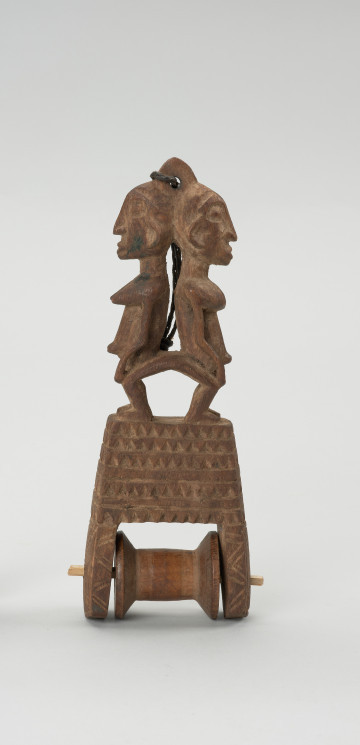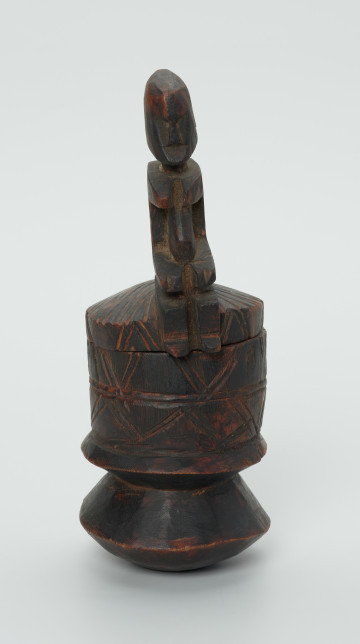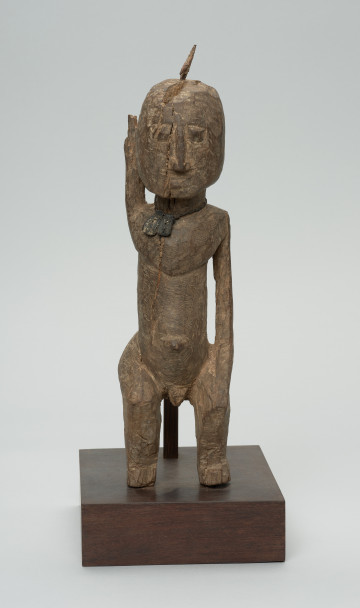
Handle with spool for weaving workshop
około 1970
National Museum in Szczecin
Part of the collection: Collection of Dogonian art
In the Dogon, as in other peoples of West Africa, weaving is the responsibility of men. They use a horizontal, 2-needle workshop, which they spread out on a construction made of wood. While working, the weaver sits on a low seat with his legs extended forward. He has strings attached to his big toes with which he moves the strands. At the height of his eyes is a spool holder, the only ornately carved element of the workshop. In his hand he holds a shuttle to move the warp thread, which has to be tightly tensioned and is often stretched to its full length of several tens of metres and weighted down with a stone at the end. In the cramped confines of Dogo villages, especially those located on the debris at the foot of the Bandiagara Escarpment, setting up such a workshop is no mean feat. Weaving is not reserved for a specialised professional group, as is the case with blacksmithing or leatherworking. Anyone can become a weaver, although skills are usually passed down from father to son. As payment for his services, the weaver usually leaves himself one-fifth of the cotton threads brought in.Weaving is often equated with speech. This is because the first warp threads appeared in the mouth of one of the ancestors responsible for creating the world. The space between these threads was filled with words spoken by the ancestor, which were woven into the threads and together formed the fabric. Therefore, the weaver performs an activity that was at the basis of the emerging world, which is why the bobbin holders, located, as it were, in the centre of the weaving workshop, are decorated with symbolic motifs referring to the times when the world was just being formed.
Ewa Prądzyńska
Author / creator
Dimensions
cały obiekt: height: 32 cm, width: 16 cm
Creation time / dating
Creation / finding place
Identification number
Location / status

około 1970
National Museum in Szczecin

między 1972 — 1973
National Museum in Szczecin

między 1951 — 2000
National Museum in Szczecin
DISCOVER this TOPIC
Museum of King Jan III's Palace at Wilanów
DISCOVER this PATH
Educational path